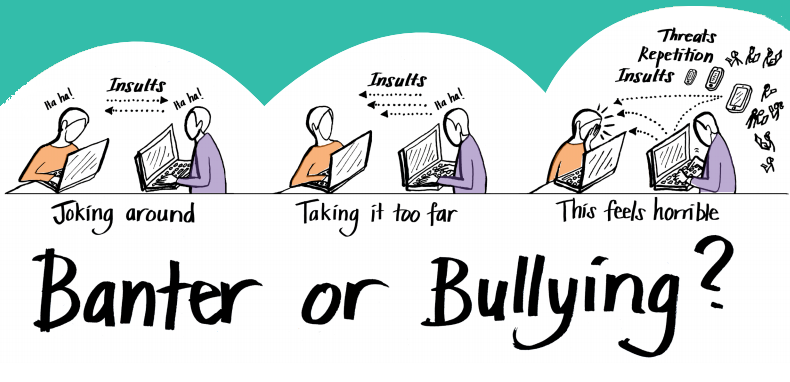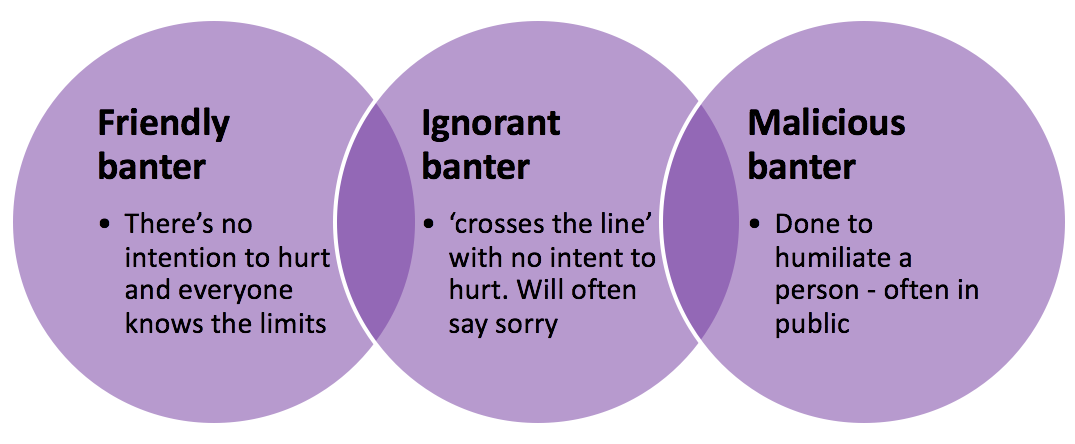Where do we draw the line between acceptable language and unacceptable language?

A blog from our Director at ABA about the difference between banter and bullying
What is banter?
The dictionary describes banter as:
the playful and friendly exchange of teasing remarks
It is important to remember that a victim of bullying will not always show feelings of hurt when they are being bullied. This is often to protect themselves from more bullying and ridicule. It is common for people who are being bullied to 'laugh along' with the bullying, try to get involved in the wrongly labelled 'banter', get angry or simply not react. This does not diminish the hurt it causes or make the bullying ok simply because they are trying to protect themselves by pretending that it's not hurtful.
Some tips for professionals (adapted with Chris Gibbons, Director of Inside Inclusion):
- Understanding the four elements of bullying is vital to knowing whether something is bullying: intentional, hurtful, repetitive, involves a power imbalance
- Just because ‘banter’ doesn’t constitute all the elements of bullying doesn’t mean it’s acceptable.
- All offensive, threatening, violent and abusive language and behaviour is always unacceptable, whatever your role
- This includes any negative language or behavior in relation to / referring to a protected characteristic under the Equality Act 2010 i.e. age, disability, gender reassignment, marriage and civil partnership, pregnancy and maternity, race, religion or belief, sex (gender), sexual orientation
- Language and behaviour can have different meanings, in different contexts. If you’re unsure, ask what was meant
- Just because someone uses certain language to refer to themselves it doesn’t necessarily means it’s acceptable, nor does it make it ok for you to use it
- Just because you think something is banter or a joke doesn’t mean other people will
- People won’t always feel confident to speak up if they are offended by something. They might even go along with it so as not to draw attention to themselves
- Third parties might be offended, even if they’re not part of your conversation

Some suggested questions to ask young people (adapted from John Khan, Anti-Bullying Practitioner):
- What is banter?
- Can you give me some examples of banter?
- When does banter turn into bullying?
-
How do we know if we cross the line?
-
How might we know if we have ‘crossed a line’ with someone?
-
How might they be feeling or behaving?
-
Do people use the term banter to disguise bullying?
